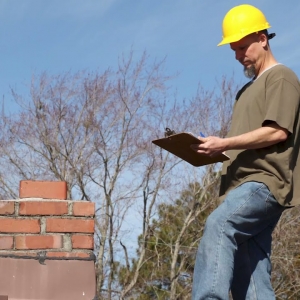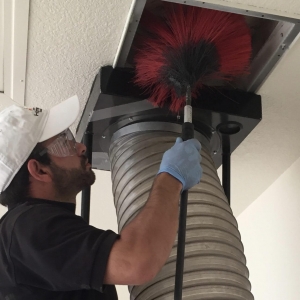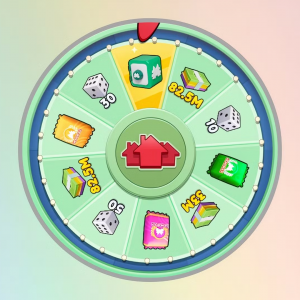Introduction
Building managers are tasked with preserving the value, performance, and lifespan of the assets within their care. One of the most critical components in any commercial building is the HVAC (Heating, Ventilation, and Air Conditioning) system. It not only regulates indoor temperature but also affects energy consumption, occupant comfort, and indoor air quality. Among the many parts of an HVAC system, the coils—both evaporator and condenser—play a vital role. Regular Commercial coil cleaning may seem like a small maintenance task, but it has a large impact on long-term performance and return on investment.
Understanding HVAC Coils and Their Role
What Are HVAC Coils?
HVAC systems typically contain two types of coils: evaporator coils and condenser coils. Evaporator coils are located inside the building and are responsible for absorbing heat from the indoor air. Condenser coils, typically found outside, release that heat to the surrounding environment. These coils rely on clean, unobstructed surfaces to efficiently transfer heat, which is the foundation of how HVAC systems regulate indoor climate.
Why Coil Cleaning Matters
Over time, coils accumulate dust, dirt, grease, pollen, mold spores, and other contaminants. This buildup creates a barrier that hinders heat transfer, leading to reduced efficiency, higher energy consumption, and potential system failures. Dirty coils force the system to work harder, which not only wastes energy but also causes premature wear and tear on mechanical components.
Consequences of Neglecting Coil Cleaning
Increased Energy Costs
When coils are dirty, the HVAC system must run longer and harder to achieve the same cooling or heating effect. This results in increased power consumption. Studies have shown that dirty coils can reduce HVAC efficiency by 20% to 30%, causing a significant rise in utility bills.
System Strain and Breakdowns
Blocked coils can lead to overheating, ice formation on evaporator coils, or compressor failure. Each of these issues can result in expensive repairs or even full system replacement. Emergency repairs are not only costly but can also disrupt building operations and tenant satisfaction.
Poor Indoor Air Quality
Unclean coils are a breeding ground for mold, bacteria, and other allergens, which can circulate through the building’s ductwork. This may cause respiratory issues, allergy flare-ups, and unpleasant odors—especially in high-traffic commercial environments such as offices, schools, or hospitals.
Shortened Equipment Lifespan
Without proper maintenance, including regular coil cleaning, HVAC systems are likely to fail earlier than expected. A commercial HVAC unit is a major capital investment, and early failure can be a financial setback. Coil cleaning helps maximize the return on that investment.
Benefits of Regular Coil Cleaning
Improved Energy Efficiency
Clean coils enable smooth heat exchange, allowing the HVAC system to reach the desired temperature faster and with less effort. This lowers the energy draw and extends the lifespan of essential components like compressors and fans.
Lower Maintenance and Repair Costs
By minimizing stress on the system, regular coil cleaning reduces the frequency of breakdowns. Fewer emergency calls and unplanned maintenance events lead to cost savings and better resource planning.
Enhanced Occupant Comfort
An efficient HVAC system provides more consistent temperatures, better humidity control, and improved air circulation. Comfortable employees, tenants, or visitors are more productive and less likely to raise complaints or vacate premises.
Regulatory Compliance and Health Standards
In certain industries, such as healthcare or food services, maintaining a clean HVAC system is necessary to comply with health codes and air quality standards. Coil cleaning contributes directly to meeting these regulatory requirements.
Best Practices for Coil Cleaning
Schedule Routine Inspections
Regular inspections allow building managers to detect early signs of coil fouling. A basic visual check, along with temperature differential testing, can reveal whether a cleaning is due. Seasonal inspections—especially before summer and winter—are ideal.
Choose the Right Cleaning Method
There are several cleaning techniques available depending on the severity of the buildup:
- Compressed air or vacuuming: Best for light dust buildup.
- Water rinsing: Effective for general cleaning.
- Chemical cleaners: Used when grease, biofilm, or mold is present. It’s important to use non-corrosive solutions compatible with coil materials.
- Steam cleaning: Suitable for deep sanitization in sensitive environments.
A trained HVAC technician should evaluate and apply the appropriate method to prevent coil damage.
Use Quality Air Filters
High-efficiency filters can reduce the amount of debris reaching the coils. Make sure filters are changed regularly and properly installed to minimize bypass airflow. Investing in good filtration reduces how often coils require deep cleaning.
Document Maintenance Activities
Keeping a maintenance log helps track cleaning schedules, assess system performance over time, and ensure compliance with manufacturer recommendations or warranty conditions. It also provides transparency for stakeholders or facility audits.
Determining the Right Cleaning Frequency
Environmental Factors
Buildings located in urban centers, industrial zones, or areas with high pollen or dust levels may require more frequent cleaning. The presence of nearby construction, loading docks, or kitchens can also increase debris accumulation on coils.
Building Usage
The nature of the building also affects cleaning needs. Data centers, healthcare facilities, or spaces with high foot traffic generate more contaminants and place greater demand on HVAC systems, necessitating more regular maintenance.
General Guidelines
A good rule of thumb is to clean condenser coils at least once per year, usually in the spring. Evaporator coils may be cleaned every 12 to 24 months, but high-demand buildings may benefit from semi-annual servicing.
Cost Considerations vs. Long-Term Savings
Some building managers hesitate to invest in coil cleaning due to the perceived cost. However, when weighed against the long-term benefits, the return on investment is clear. For example:
- A $500 coil cleaning can prevent a $5,000 compressor failure.
- Regular maintenance can extend HVAC lifespan by 5–10 years.
- Energy savings alone often recoup the cleaning cost within a few months.
Failing to maintain HVAC coils is not a neutral decision—it actively erodes asset value and increases operational expenses.
Working with Professional HVAC Services
Hiring professional HVAC technicians ensures proper cleaning, adherence to safety protocols, and use of the correct tools and chemicals. Certified technicians can also identify other potential issues during cleaning, such as refrigerant leaks, fan imbalances, or failing capacitors, providing early intervention opportunities.
Conclusion
Commercial coil cleaning is a proactive step building managers can take to protect one of their most valuable assets: the HVAC system. Clean coils promote energy efficiency, prolong equipment life, enhance indoor air quality, and reduce repair costs. By implementing a regular maintenance schedule that includes coil inspections and cleanings, building managers can ensure long-term operational reliability, regulatory compliance, and occupant satisfaction. The relatively low cost of cleaning is a small price to pay for the peace of mind and financial protection it delivers.
FAQs
- How do I know if my coils need cleaning?
If your HVAC system is running longer than usual, producing uneven temperatures, or your energy bills are spiking, dirty coils may be to blame. A visual inspection or service technician can confirm. - Can my in-house maintenance team clean the coils?
For light dirt or surface dust, trained in-house staff may handle basic cleaning. However, for deeper buildup, chemical use, or hard-to-reach coils, it’s best to hire licensed HVAC professionals. - How much does commercial coil cleaning cost?
Prices vary based on building size and system complexity but generally range from $300 to $800 per unit. Larger facilities may negotiate package rates with service providers. - Will cleaning coils extend the life of my HVAC system?
Yes. Clean coils reduce strain on compressors, fans, and motors, helping avoid premature failure and costly replacements. - What happens if I never clean the coils?
Neglecting coil maintenance leads to decreased efficiency, higher energy bills, frequent repairs, poor indoor air quality, and eventual system failure—usually at the worst possible time.
Read more :air duct cleaning arlington tx








